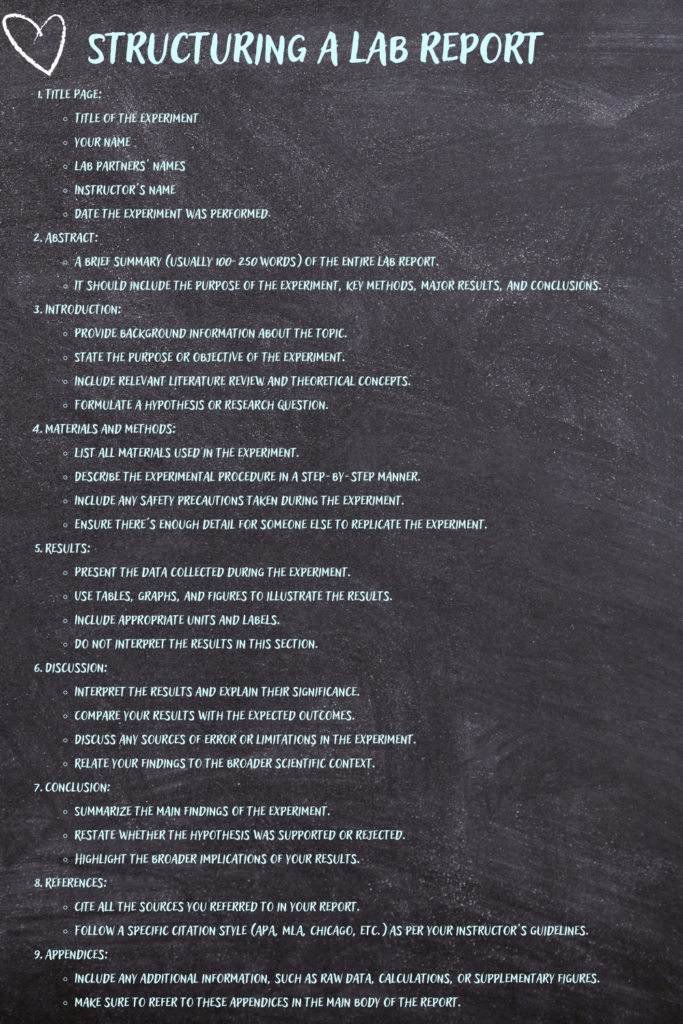Lab report writing help
Writing a lab report is not a walk in the park, especially for students at a high level of learning. Effective lab report writing requires skills and knowledge. A written lab report synthesizes a lab session. With lab reports, it is easier for any other person to read and contemplate the experiment you did. Read More









